Sustainable Yala Safaris
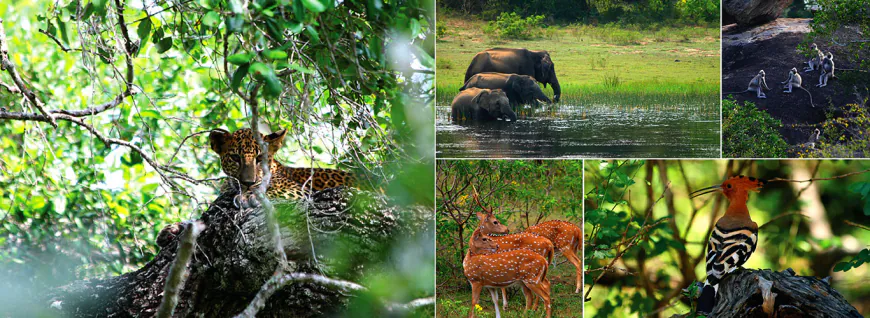
Table of Contents
- Yala's Natural Wonders
- Responsible Yala Tourism
- Eco-Friendly Park Practices
- Wildlife Habitat Degradation
- Wildlife Interaction Guidelines
- Local Community Engagement
- Eco-Friendly Visitor Guidelines
- Conservation Learning Opportunities
- Sustainable Travel Call
- Frequently Asked Questions
- Connect With Yala
-
Yala's Natural Wonders
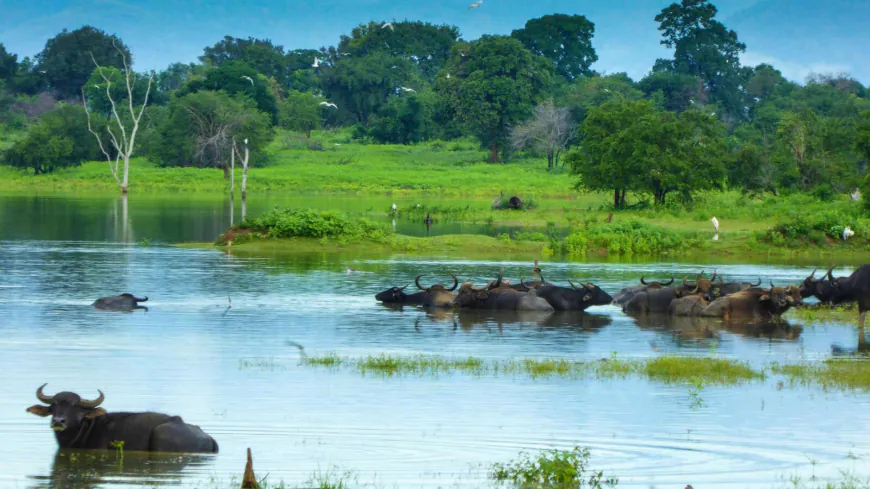
Yala National Park, the premier wildlife sanctuary in Sri Lanka, is renowned for its stunning biodiversity and high density of leopards. However, the park is currently grappling with the pressures of increased tourism, which poses risks to its fragile ecosystems. New regulations and sustainable practices are being introduced to tackle overcrowding and protect the park's natural habitats. As highlighted by Experience Travel Group, these efforts underscore the importance of responsible tourism in safeguarding Yala's remarkable wildlife and landscapes for future generations.
Spanning 378 square miles, Yala is Sri Lanka's oldest national park and the second largest, attracting thousands of visitors annually. While tourism supports the local economy, it has also led to significant challenges, particularly in Block One, where visitor numbers are concentrated.
With a conservation history dating back to 1900, Yala was designated a wildlife sanctuary before becoming a national park in 1938. The Department of Wildlife Conservation (DWC) is committed to eco-tourism, urging visitors to observe wildlife responsibly while minimizing their ecological impact. For instance, jeep drivers must be trained and licensed, ensuring that they are equipped to navigate the park sustainably.
Visitors are encouraged to follow specific guidelines to protect both themselves and the wildlife. Key recommendations include refraining from actions that might disturb animals, such as loud noises, flash photography, and feeding. Instead, exploring less crowded areas of the park, like Blocks Five and Six, is advisable, especially during the optimal visiting months from February to July, when animals congregate around water sources.
-
Responsible Yala Tourism
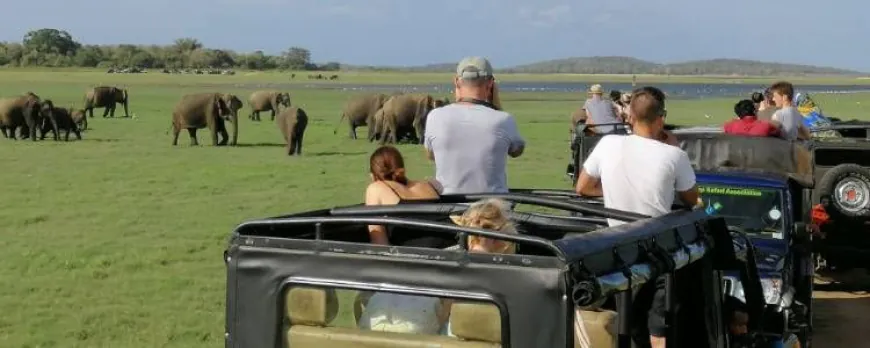
Responsible tourism is vital for maintaining natural habitats and supporting local communities. In Yala National Park, several sustainable practices have been put into place:
- Environmental Protection: Measures to regulate visitor numbers and vehicle access help preserve the park’s delicate ecosystem.
- Economic Benefits: Tourism generates jobs in local communities, providing economic opportunities that can lead to better living standards.
- Community Involvement: Engaging local residents in decision-making processes empowers them and ensures their needs are considered.
- Cultural Preservation: Strict visitor guidelines help protect both cultural heritage and natural resources.
- Education: Providing tourists with insights into local environmental and cultural issues enhances their understanding of the region.
- Improved Working Conditions: Local residents are given better access to the tourism industry, fostering community growth.
- Cultural Awareness: Encouraging mutual respect between tourists and local people enriches the visitor experience.
- Sustainable Practices: Promoting eco-friendly lodges and responsible safari operations is essential for protecting the environment.
- Environmental Education: Raising awareness about conservation among visitors and locals is crucial for sustainable practices.
- Balanced Development: Ensuring that tourism development aligns with biodiversity preservation is critical for the long-term health of the park.
These responsible tourism practices create a framework that benefits the environment and local communities while providing visitors with enriching experiences. By adhering to these principles, Yala can maintain its status as a premier wildlife destination and protect its natural treasures.
-
Eco-Friendly Park Practices

To mitigate environmental impacts, Yala National Park employs several eco-friendly strategies aimed at reducing waste and promoting sustainable accommodations:
Waste Management
- Leave No Trace: Visitors must adhere to a strict policy of removing all trash from the park.
- Food Waste Control: Eating in designated areas helps manage waste.
- Littering Ban: Littering and removing natural items are strictly prohibited.
Pollution Control
- Alcohol Prohibition: Alcohol is banned within the park to minimize litter and disturbances.
- Vehicle Regulations: Drivers must turn off engines while stationary and refrain from honking to reduce noise pollution.
- Photography Guidelines: Flash photography is not allowed to minimize disturbance to wildlife.
Supporting Eco-Friendly Accommodations
- Promoting Eco-Lodges: The park encourages village-based eco-lodges and camps.
- Sustainability Measures: Accommodations are urged to implement water conservation, renewable energy, and locally sourced materials.
Visitor Education
- Eco-Tourism Principles: Visitors receive information on responsible travel practices and the park's ecosystem.
- Wildlife Observation: Tourists are encouraged to observe animals quietly, without disturbing their natural behaviors.
Sustainable Transportation
- Low-Emission Vehicles: Encouraging the use of electric or low-emission vehicles for safari tours helps reduce the carbon footprint.
- Shared Transportation: Promoting shared rides reduces the number of vehicles in the park.
Habitat Protection
- Designated Routes: Strict adherence to designated paths minimizes habitat disruption.
- Invasive Species Management: Removal of non-native plants protects the park's biodiversity.
By implementing these eco-friendly strategies, Yala National Park seeks to balance tourism with conservation, allowing visitors to enjoy its natural wonders while minimizing their environmental impact.
-
Wildlife Habitat Degradation
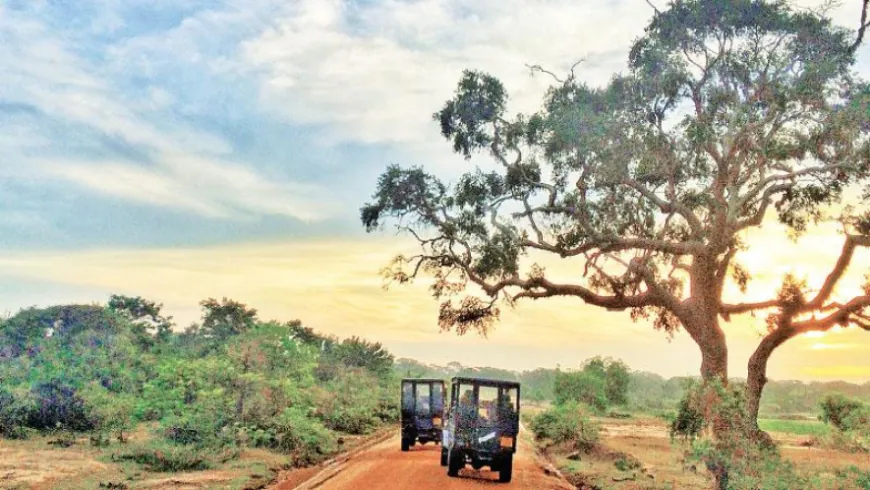
Wildlife habitat degradation poses significant challenges in Yala National Park, with various threats impacting its flora and fauna:
- Destruction of Natural Forests: Efforts are ongoing to mitigate the loss of dry-zone forests.
- Invasive Species: The introduction of species like Lantana camara alters natural habitats, replacing native vegetation with invasive species.
- Climate Change: Changing weather patterns affect wildlife distribution and habitat.
- Human Encroachment: The expansion of settlements and tourism-related developments threatens wildlife habitats.
- Off-Road Driving: This practice disrupts habitats and disturbs wildlife.
- Noise Pollution: Increased visitor noise affects animal behavior and communication.
- Overcrowding: Popular areas, particularly Block One, experience significant congestion, leading to changes in animal behavior.
- Poaching: Despite conservation efforts, poaching remains a pressing issue.
- Illegal Logging: This activity reduces forest cover and destroys habitats.
- Infrastructure Limitations: Inadequate facilities hinder wildlife visibility and access.
These factors collectively threaten the integrity of Yala's ecosystems, highlighting the need for continued conservation efforts.
-
Wildlife Interaction Guidelines
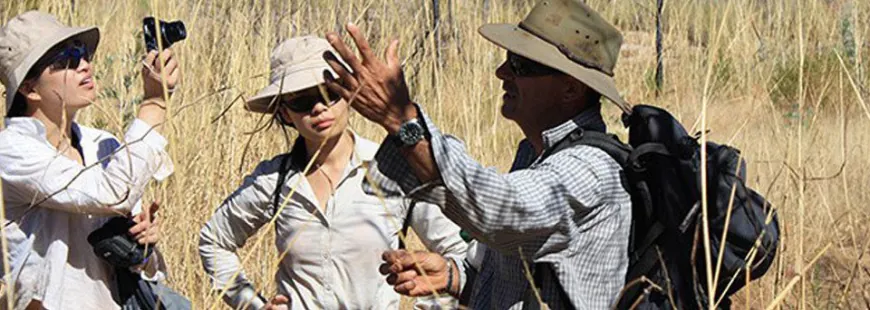
To maintain the ecological balance of Yala National Park, visitors must adhere to strict wildlife interaction guidelines:
Respect Wildlife Boundaries
- Maintain Distance: Keep a safe distance from all animals, particularly dangerous species.
- Stay in Vehicles: Remain inside vehicles during safaris for safety and to avoid disturbing wildlife.
- No Feeding or Touching: Interactions that may disturb or endanger animals are prohibited.
- Quiet Observation: Avoid loud noises and sudden movements that may startle wildlife.
Ethical Interaction Guidelines
- Use Binoculars: Observe animals from a distance rather than approaching them.
- Turn Off Engines: Reduce noise pollution by turning off vehicle engines when stationary.
- Avoid Flash Photography: This can disrupt nocturnal animals.
Visitor Conduct
- Follow Ranger Instructions: Adhere to guidelines provided by park rangers and guides.
- Leave No Trace: Remove all trash and avoid removing natural items.
- Secure Food: Prevent animals from accessing human food.
Wildlife Observation Etiquette
- Be Patient and Quiet: Practice patience when observing wildlife.
- Limit Observation Time: Allow time for other visitors to experience the animals too.
- Respect Natural Behaviors: Understand and respect the daily routines of animals.
Supporting Conservation
- Choose Eco-Friendly Options: Stay at environmentally responsible accommodations.
- Report Illegal Activities: Notify park authorities about poaching or other illegal actions.
By adhering to these guidelines, visitors can contribute to the protection of Yala's wildlife while enjoying the unique experiences the park offers.
-
Local Community Engagement
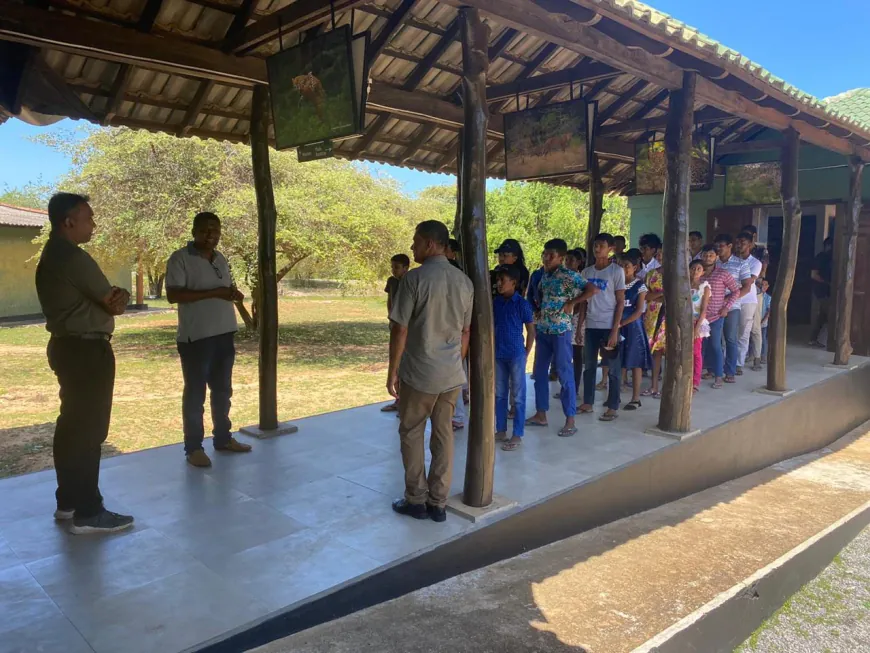
Engaging with local communities is vital for sustainable tourism in Yala National Park. By supporting local businesses and demonstrating cultural sensitivity, visitors can enhance their travel experience while benefiting the region:
Supporting Local Economies
- Stay at Local Lodges: Choose accommodations that are owned and operated by locals.
- Buy Local Crafts: Purchase souvenirs and handicrafts from local artisans.
- Hire Local Guides: Benefit from their expertise and knowledge of the area.
- Dine Locally: Experience traditional Sri Lankan cuisine by eating at local restaurants.
Cultural Sensitivity
- Learn Local Languages: Familiarizing yourself with basic Sinhala or Tamil phrases can improve interactions.
- Dress Appropriately: Modesty is important, especially in sacred sites.
- Ask Before Photographing: Respect local customs regarding photography.
- Participate Respectfully: Engage in local events and festivals with consideration for cultural norms.
Supporting local businesses not only contributes economically but also enriches visitors’ experiences. For example, staying at eco-lodges allows travelers to immerse themselves in the culture while aiding rural development efforts. Local guides enhance safari experiences by sharing their extensive knowledge of the area and its wildlife.
Respecting cultural practices is equally essential. When visiting places like the Kataragama Temple, adhering to customs such as removing shoes is important. Understanding and appreciating the relationship between local communities and wildlife is key to responsible tourism.
By fostering connections with local businesses and practicing cultural sensitivity, visitors can help promote sustainable development in Yala while deepening their understanding of Sri Lankan culture and conservation efforts.
-
Eco-Friendly Visitor Guidelines
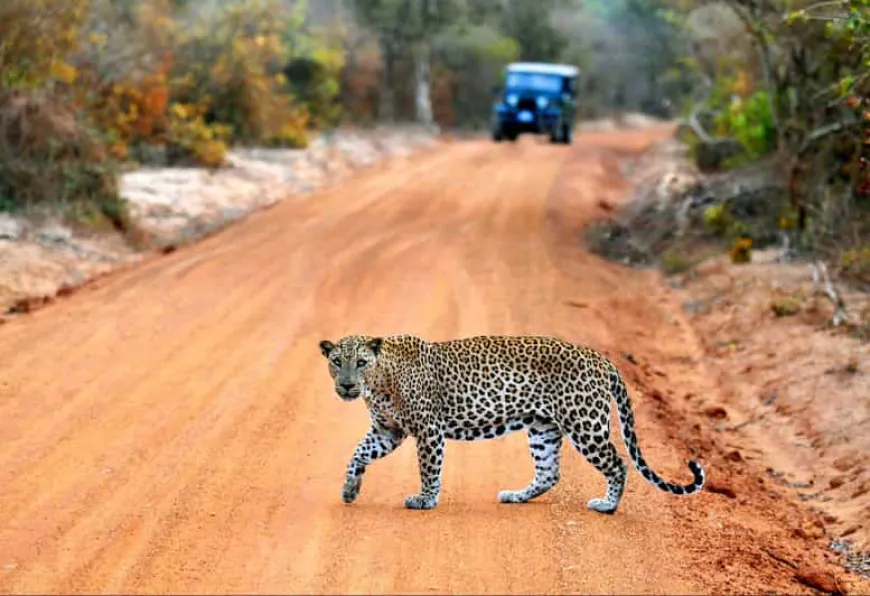
When visiting Yala National Park, it's essential to consider the gear you bring and your behavior while in the park to promote responsible tourism. Here's a comprehensive guide for packing eco-friendly gear and adhering to park regulations to minimize your ecological impact:
Eco-Friendly Packing List
- Reusable Water Bottle: An essential item to help eliminate plastic waste.
- Biodegradable Toiletries: Choose solid options like shampoo and soap bars to reduce plastic packaging.
- Reef-Safe Sunscreen: Opt for mineral-based sunscreens that are safe for marine ecosystems if you'll be near the coast.
- Reusable Shopping Bags: Ditch single-use plastic bags in favor of sustainable alternatives.
- Solar-Powered Charger: A great way to power your devices while minimizing reliance on non-renewable energy.
- Bamboo Utensils: Perfect for eco-conscious dining during your visit.
- Sustainable Clothing: Wear apparel made from organic cotton or bamboo, which is both comfortable and environmentally friendly.
Park Regulations and Guidelines
- Stay in Your Vehicle During Safaris: This practice ensures both your safety and minimal disturbance to the wildlife.
- Do Not Feed or Touch Wildlife: Interacting with animals can disrupt their natural behaviors and pose risks to their well-being.
- Littering and Removal of Natural Items are Prohibited: Embrace a "Leave No Trace" philosophy by taking all trash with you.
- Stick to Designated Paths: Following set routes helps protect habitats and prevents damaging the environment through off-road driving.
- Avoid Flash Photography: This can disturb nocturnal animals and disrupt their natural behavior.
- Keep Noise Levels Down: Maintaining a quiet atmosphere is crucial, especially near wildlife, as noise pollution can significantly affect animals.
- Alcohol Consumption is Forbidden: This rule helps maintain a peaceful environment and reduces littering.
By prioritizing eco-friendly and reusable items when preparing for your trip to Yala, you contribute to a healthier environment. Using a reusable water bottle can drastically cut down on plastic pollution, a major issue in many natural areas. Selecting biodegradable toiletries and solid hygiene products further minimizes your ecological footprint.
Wear sustainable clothing made from organic materials for comfort during your safari, and consider a solar-powered charger for your devices to lessen your reliance on conventional energy sources.
Respecting park regulations is vital to preserving Yala's unique ecosystem and wildlife. Keeping to your vehicle during safaris ensures safety and reduces the likelihood of disturbing animals. It's also crucial to refrain from feeding or touching wildlife, as this can lead to harmful consequences for the creatures you wish to observe.
Always carry out any trash you generate, adhering to the "Leave No Trace" principle. Staying on designated paths not only protects habitats but also curbs the negative effects of off-road activities.
Flash photography should be avoided to prevent disturbing nocturnal species, and maintaining silence is essential while observing wildlife. Remember that alcohol is not permitted within the park, helping to ensure a tranquil experience for all visitors.
By being mindful of your packing choices and following park regulations, you can significantly lessen your environmental impact while enjoying the breathtaking beauty of Yala National Park. These responsible practices safeguard the park’s biodiversity and enhance the overall safari experience for everyone involved.
-
Conservation Learning Opportunities
Yala National Park offers a range of educational and volunteer opportunities for those keen on wildlife conservation and environmental stewardship. These programs enable visitors to engage directly in conservation efforts while deepening their understanding of Yala’s unique ecosystem.
Conservation Programs for Visitors
- Wildlife Research Initiatives: Research projects focused on protecting at-risk species and preserving biodiversity.
- Educational Tours with Naturalists: Expert-led tours that provide a comprehensive look at Yala’s ecosystems, flora, and fauna.
- Conservation Skill Workshops: Training sessions on topics like habitat management, wildlife tracking, and mitigating human-wildlife conflicts.
- Youth Education Initiatives: School-based programs that foster conservation awareness among local youth.
- Biodiversity Studies: Surveys that document species diversity within the park to support ecological health.
Hands-On Volunteer Opportunities
- Habitat Rehabilitation: Volunteers assist in removing invasive species and planting native plants to enhance habitat for wildlife.
- Wildlife Tracking Assistance: Supporting researchers in monitoring animal populations and behaviors, providing essential data for conservation planning.
- Community Engagement: Working with local communities to encourage sustainable practices and share the importance of conservation.
- Anti-Poaching Support: Partnering with park rangers to safeguard endangered species from illegal hunting.
- Eco-Tourism and Sustainable Development: Assisting local communities in developing eco-friendly tourism options that align with conservation goals.
Through these conservation programs, visitors learn about the intricate ecological relationships within Yala. The Department of Wildlife Conservation (DWC) leads research that focuses on the survival of endangered species and on maintaining ecosystem health. Educational tours led by knowledgeable naturalists allow visitors to gain insight into Yala’s plants, animals, and the complexities of preserving them.
For those seeking deeper involvement, workshops delve into essential skills like tracking animals and managing habitats, as well as addressing the challenges of human-wildlife interactions. School outreach initiatives also provide local youth with environmental education, fostering a generation more attuned to conservation.
Volunteer opportunities invite visitors to contribute practically, from habitat restoration efforts that protect native species to monitoring programs that support research on animal behavior and population health. Community outreach roles allow volunteers to work closely with nearby villages, promoting environmentally friendly practices that also benefit local livelihoods.
Those drawn to direct action can join anti-poaching efforts, aiding rangers in safeguarding endangered animals from illegal hunting, or assist in eco-tourism initiatives that help local communities create sustainable income while preserving Yala’s natural environment.
Engaging in these programs not only supports the park's conservation goals but also offers participants hands-on experience in wildlife management and sustainable tourism.
-
Sustainable Travel Call
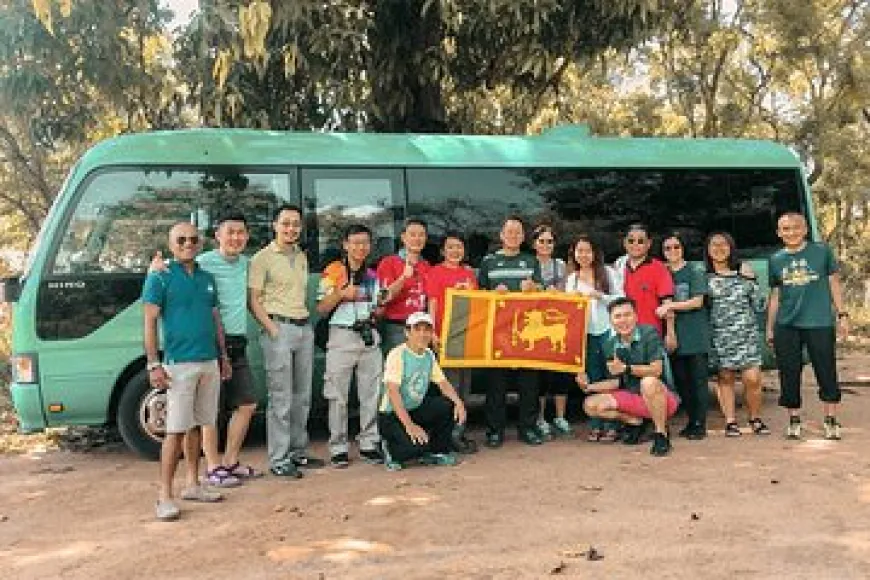
Responsible tourism practices in Yala National Park are essential for preserving its unique ecosystem and wildlife while supporting local communities. Here's a recap of key practices and encouragement for responsible travel:
Recap of Responsible Tourism Practices
- Minimize Environmental Impact: Reduce waste and follow park guidelines.
- Respect Wildlife Boundaries: Adhere to ethical interaction guidelines.
- Support Local Communities: Engage with local businesses and practice cultural sensitivity.
- Use Eco-Friendly Gear: Follow park rules to reduce your ecological footprint.
- Participate in Educational Programs: Engage in volunteer opportunities to contribute to conservation efforts.
Encouragement to Travel Responsibly
- Choose Reputable Safari Operators: Opt for those committed to sustainable practices.
- Explore Quieter Areas: Visit Blocks Five and Six to reduce overcrowding.
- Educate Yourself: Learn about the park's ecosystem and conservation challenges before visiting.
- Be a Responsible Traveler: Follow guidelines and respect the natural environment.
- Share Your Knowledge: Promote responsible tourism among other travelers.
By adopting these practices, visitors can help ensure the long-term survival of Yala National Park's diverse ecosystems and wildlife populations. Responsible tourism not only preserves the park for future generations but also enhances the overall experience for current visitors. As you plan your trip to Yala, remember that every small action contributes to the bigger picture of conservation and sustainable tourism.
-
Frequently Asked Questions
When is the best time to visit Yala National Park?
The ideal time to visit is from February to July, during the dry season when animals gather around water sources.Are there leopards in Yala National Park?
Yes, Yala is known for its high density of leopards, especially in Block 1, where around 90-100 leopards have been identified.How long does a safari in Yala typically last?
A typical safari tour is approximately 4 hours.Is it necessary to have a guide for a Yala safari?
While not mandatory, a guide is strongly recommended to help spot wildlife, provide insights, and ensure compliance with park regulations.What should I wear on a Yala safari?
Wear comfortable, neutral-colored clothing to blend in with the environment and avoid bright colors that may disturb animals.Can I get out of the vehicle during a safari?
No, visitors must stay inside the vehicle for safety reasons.Is flash photography allowed in the park?
Flash photography is prohibited to prevent disturbing the animals.Are there accommodation options inside Yala National Park?
Yes, there are various accommodations available, from eco-lodges to luxury camps within and around the park.Is Yala National Park open year-round?
The park is generally open throughout the year, though it usually closes in September for maintenance.How can I minimize my environmental impact when visiting Yala?
Follow all park guidelines, avoid littering, use eco-friendly gear, and choose responsible tour operators.Are there opportunities to learn about or contribute to conservation efforts in Yala?
Yes, educational programs and volunteer opportunities are available for visitors interested in conservation.These FAQs provide essential information for visitors planning a trip to Yala National Park, covering topics from wildlife viewing to responsible tourism practices.
-
Connect With Yala
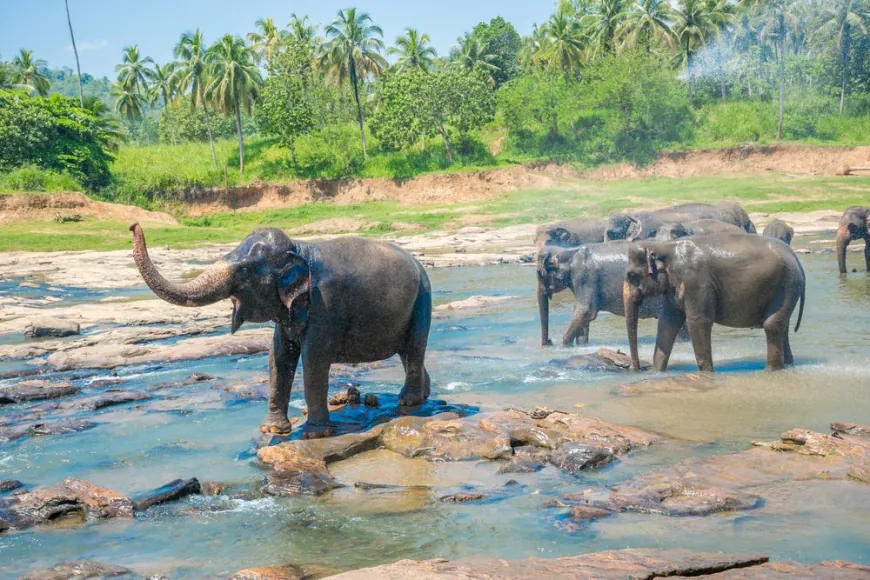
Get in Touch for More Information:
- Email: hi@yalalk.com
- Phone: +94 723 456 726
Join Our Newsletter:
Sign up on our website to receive regular updates about Yala National Park, including conservation initiatives and sustainable tourism news.Engage with Our Content:
- Blog Comments: Share your thoughts and experiences on our blog posts.
- Social Media Shares: Help spread awareness about responsible tourism by sharing our articles.
Follow Us on Social Media:
Stay up-to-date with the latest wildlife sightings, news, and conservation efforts at Yala.Book Your Yala Experience:
Explore eco-friendly accommodation options and responsible safari tours on our website.Support Conservation Efforts:
Discover our ongoing projects and learn how you can help protect Yala’s unique ecosystem.By staying connected, you can actively support sustainable tourism in Yala National Park even after your visit. Your engagement plays a vital role in preserving this natural wonder for future generations.
What's Your Reaction?








































